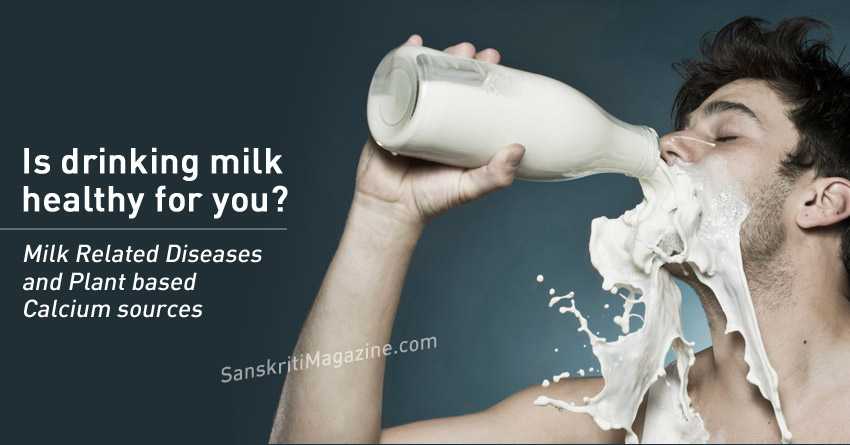Benefits of Drinking Milk: A Comprehensive Guide
When it comes to maintaining a healthy lifestyle, the benefits of drinking milk cannot be overstated. Milk is a nutrient-rich beverage that provides numerous advantages for our overall well-being. In this article, we delve into the various benefits of consuming milk and highlight why it should be an essential part of your daily diet.
The Nutritional Powerhouse: Milk
Milk is a natural source of essential nutrients that are vital for the proper functioning of our bodies. It is packed with a wide array of vitamins and minerals, including calcium, protein, vitamin D, vitamin B12, phosphorus, and potassium. Let’s explore how these nutrients contribute to our health.
Calcium for Strong Bones and Teeth
One of the primary benefits of drinking milk is its high calcium content. Calcium plays a crucial role in maintaining strong bones and teeth. Regular consumption of milk can help prevent osteoporosis and reduce the risk of fractures, especially in older adults. It is an excellent source of calcium for individuals of all ages.
Protein for Muscle Growth and Repair
Protein is essential for muscle growth, repair, and maintenance. Milk is an excellent source of high-quality protein, containing all the essential amino acids required by our bodies. Incorporating milk into your diet can aid in building and repairing muscles, making it an ideal choice for athletes and individuals engaged in physical activities.
Vitamin D for Strong Immune System
Vitamin D is a vital nutrient that helps strengthen our immune system and supports overall health. Milk is often fortified with vitamin D, making it a convenient and accessible source of this important vitamin. Regular consumption of milk can help prevent vitamin D deficiency and its associated health issues.
Vitamin B12 for Brain Function
Vitamin B12 is essential for maintaining healthy brain function and the production of red blood cells. Milk is a natural source of vitamin B12, making it an ideal choice for individuals following a vegetarian or vegan diet, as this vitamin is predominantly found in animal-based foods.
Phosphorus for Energy Metabolism
Phosphorus is a mineral that plays a crucial role in energy metabolism, helping convert food into usable energy. Milk contains an ample amount of phosphorus, contributing to the efficient functioning of our cells and tissues.
Potassium for Heart Health
Potassium is an essential mineral that helps maintain healthy blood pressure levels and supports heart health. Milk is a good source of potassium, which aids in regulating blood pressure and reducing the risk of cardiovascular diseases.
The Role of Milk in a Balanced Diet
In addition to its impressive nutritional profile, milk is also a versatile ingredient that can be incorporated into various recipes and meals. Here are some tips on how to include milk in your daily diet:
Start Your Day with a Glass of Milk
Starting your day with a glass of milk can provide you with a nutritious boost. Whether you prefer it plain, with cereal, or as a part of your morning coffee, milk can be a great way to kickstart your day with essential nutrients.
Use Milk in Cooking and Baking
Milk can be used in a wide range of recipes, from savory dishes to baked goods. It adds a creamy texture and enhances the flavor of various dishes, making them more enjoyable and nutritious. Consider using milk in soups, sauces, smoothies, and desserts to reap its benefits.
Enjoy Dairy Products
In addition to drinking milk, incorporating other dairy products like yogurt and cheese into your diet can provide you with additional nutrients and health benefits. Explore different dairy options and find what suits your taste preferences.

Milk is a nutritional powerhouse that offers numerous benefits for our overall well-being. From promoting strong bones and teeth to supporting muscle growth and repair, the advantages of consuming milk are truly remarkable. Its rich nutrient profile, including calcium, protein, vitamin D, vitamin B12, phosphorus, and potassium, makes it an excellent choice for individuals of all ages. By incorporating milk into your daily diet, you can take a significant step towards achieving a healthier lifestyle.
Frequently Asked Questions
1. Why is milk considered a nutritious beverage?
Milk is considered nutritious because it is a rich source of essential nutrients like calcium, protein, vitamins (such as vitamin D, B12, and riboflavin), and minerals.
2. Does drinking milk help in maintaining strong bones?
Yes, milk is an excellent source of calcium, which is vital for building and maintaining strong bones and teeth.
3. Can milk improve muscle growth and repair?
Yes, milk contains high-quality protein that promotes muscle growth and repair after exercise or physical activity.
4. Is milk good for maintaining a healthy weight?
Milk can be a part of a healthy diet for weight management as it provides a feeling of fullness and contains essential nutrients without excessive calories.
5. Does drinking milk help in reducing the risk of osteoporosis?
Regular milk consumption, along with a balanced diet, can help reduce the risk of osteoporosis, a condition characterized by weak and brittle bones.
6. Can milk benefit cardiovascular health?
Consuming low-fat milk as part of a balanced diet can contribute to cardiovascular health by providing essential nutrients and reducing the risk of high blood pressure and stroke.
7. Is milk beneficial for children’s growth and development?
Milk is a crucial component of a child’s diet as it supports their growth and development by providing essential nutrients required for bone, muscle, and brain development.
8. Can drinking milk improve skin health?
Milk contains nutrients like vitamin A and antioxidants that can contribute to healthy skin by promoting cell regeneration and reducing skin damage.
9. Is milk a suitable option for lactose-intolerant individuals?
Lactose-intolerant individuals can opt for lactose-free milk or lactase enzyme supplements to enjoy the benefits of milk without experiencing digestive discomfort.
10. Can milk be included in a vegan diet?
No, milk is derived from animals and is not considered vegan. However, there are various plant-based milk alternatives available for individuals following a vegan lifestyle.




